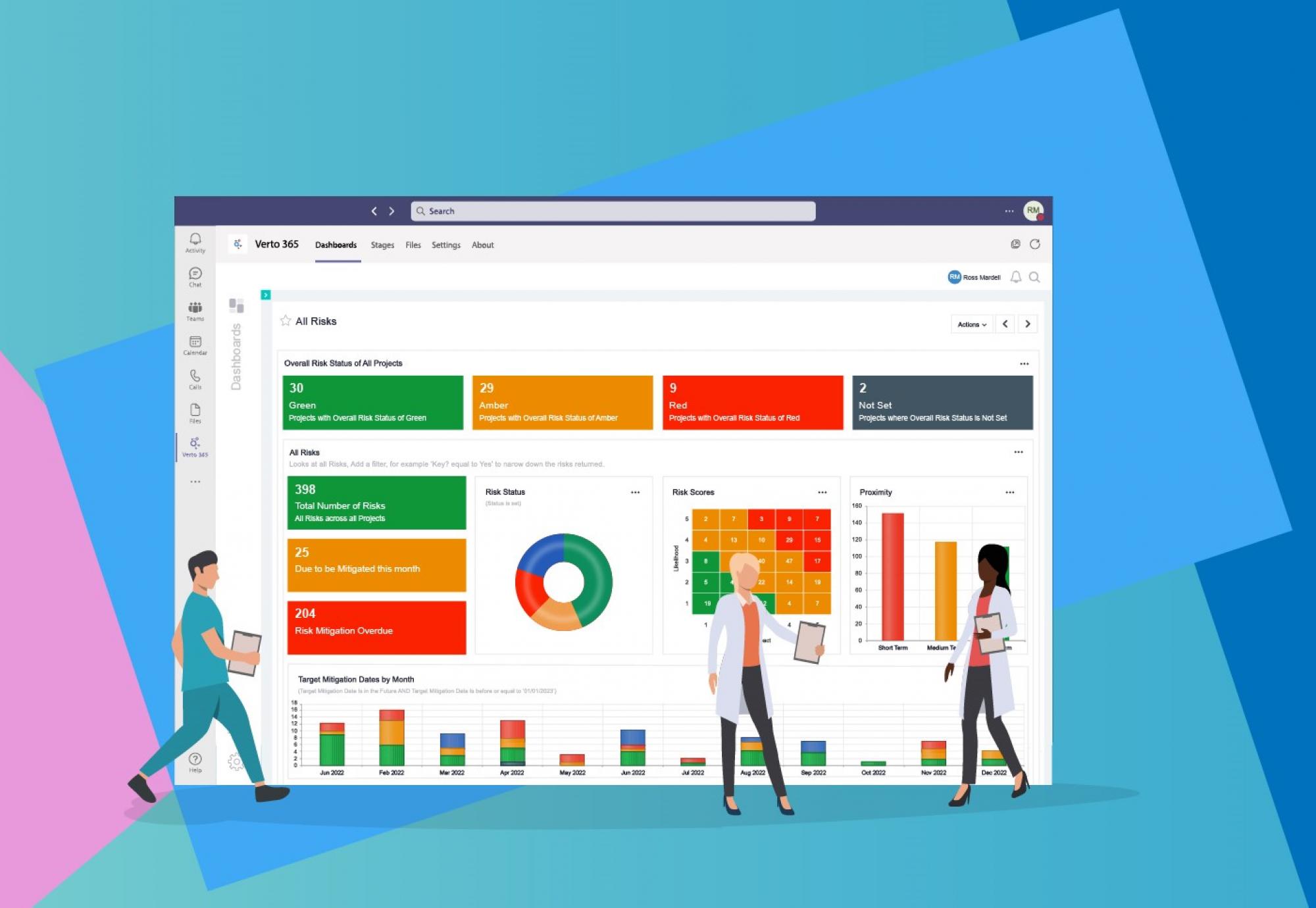Last year NHS Digital successfully completed the world’s largest ever enterprise email migration after moving 2.1m NHSmail mailboxes over to Microsoft’s Exchange Online platform. Microsoft Teams was then rolled out to further improve collaboration across the service. Since then, 1.4m staff sending upwards of 65m messages in the first 6 months have been using the platform by shifting away from calls in favour of quicker communication via Teams messaging. It also enables NHSmail to provide the latest Office 365 services to all users together with a range of approved Apps.
What’s next for the NHS platform?
Following its dramatic uptake, a new range of Microsoft Teams apps to improve workplace productivity and help to achieve even more from Teams, are beginning to emerge. The NHSmail Technical Design Authority (TDA) has been working to test and approve those that will benefit their users the most.
Verto 365 is one of these and provides a solution to manage workspaces and projects directly from within Microsoft Teams. It’s a new breed of App that fully opens inside Teams rather than just using notifications, so users don’t need to navigate away and log in and out of other systems to manage their work. It means all work and projects can live in one place and be managed across one platform for everyone.
This is welcome news for health and social care collaborative working. Verto 365 allows work to be managed from within Teams, taking away the interruption of having to switch to alternative systems to complete tasks. Projects, programmes and even complete portfolios of work can be stored securely and managed from within Teams by multiple users. It marks a significant shift in user experience by maintaining the flow of work and therefore improving productivity as it holds information and data in one place, and in the same format, throughout. There’s no need to log into Verto separately as it is all part of a single sign-on process for the NHSmail platform so everything can now be done directly from within Teams.
The opportunity
With the integration of Verto 365, staff already using Teams can be empowered to do more by using new tools from within a system they are already familiar with. The app provides useful functionality in the form of Kanban boards, dynamic dashboards, interactive Gantt charts, risk, benefit and finance management and every detail needed to successfully plan, manage and run projects and programmes on any scale. Workforces can engage further in the work being done and begin to vary their responsibilities to take on more by having increased access to the powerful tools on offer.
The Verto Playground is a Verto 365 free-trial option where users can test and learn by viewing huge amounts of sample project information as well as being able to input their own test data to get to know the tools in their own time. The Playground is available for an unlimited amount of time and includes key functionality.
The detail
Verto 365’s seamless Single Sign-on process eliminates the need to remember and input login credentials across multiple platforms each time you want to access your project information. The benefits of integrating this effectively with Office 365 is also evident when uploading/downloading documents directly from/to your OneDrive folders from Verto 365, minimising interruptions to the flow of work.
What’s next
We’ve worked across the NHS for over 10 years. Verto are user-led in their approach to continuous improvement and are excited to work with their existing clients, already making use of Verto 365, for the next phases of development. The Verto team are already planning to begin incorporating their platform into more of the Microsoft suite of tools once the technology is further developed by Microsoft. As a small and agile company, Verto are one of the first organisations to exploit the new opportunities that Microsoft’s deep integration abilities now offer, and by simply asking, “why not?”, they have re-imagined Teams into a fully functioning project, programme and work management platform to bring ease and simplicity to organisations’, often complex, working practices.



















